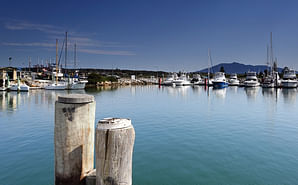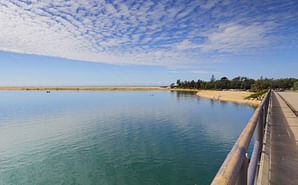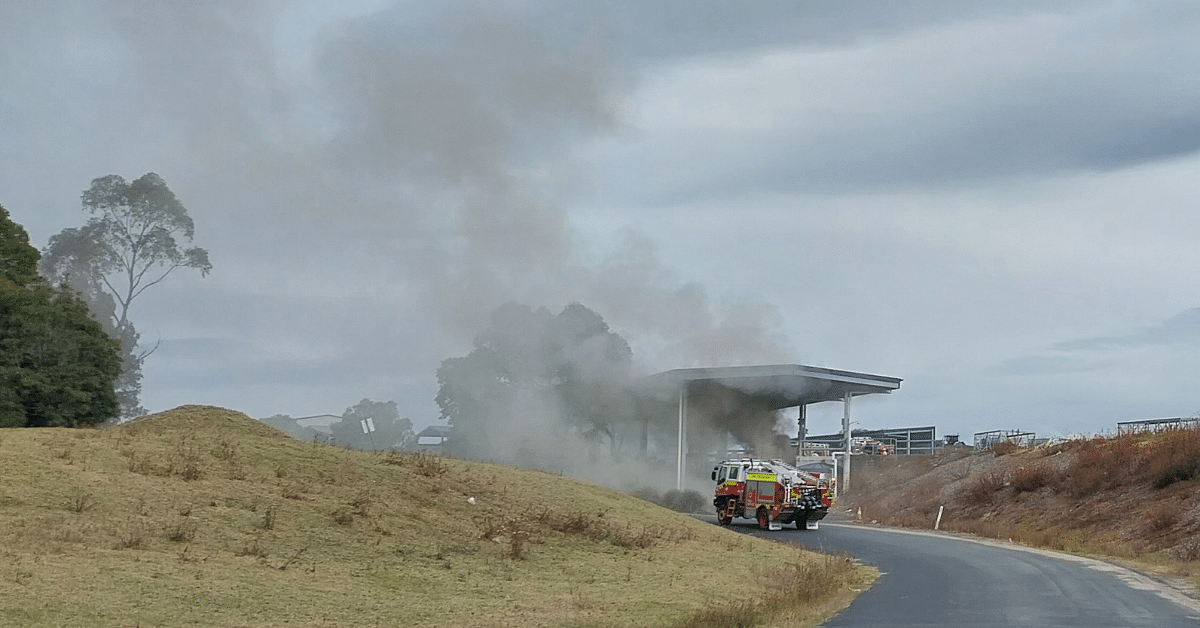Safe disposal of marine flares and batteries urged to prevent fires
A recent fire and temporary shutdown of the Merimbula Waste Transfer Station would have been avoided if responsible marine flare disposal protocols had been followed.
The fire caused by a marine flare at the Merimbula Waste Transfer Station.
23 June 2023
A recent fire and temporary shutdown of the Merimbula Waste Transfer Station would have been avoided if responsible marine flare disposal protocols had been followed.
The fire in May occurred after a member of staff saw smoke coming from an onsite bin.
Council’s Waste Services Manager, Alan Gundrill said the transfer station team’s first priority was customer safety.
“The staff on site acted quickly by closing the facility to customers and notifying emergency services as per our procedure,” Mr Gundrill said.
“After the fire had been extinguished, it soon became apparent the cause was an expired marine flare that had ignited surrounding material.
“This could have been a lot worse. At any time, our general waste stream can contain a wide range of flammables, explosives and toxic substances.
“If any of these products had caught alight, the implications for health, safety and the environment could have been very serious.
“Please, if you have expired marine flares you wish to dispose of, do not put them in the bin or dispose of at a waste transfer station.
“The NSW Government runs an annual marine flare collection service in our area. We recommend people with expired flares make the most of this service when it visits the shire.
“Until a safe collection service next visits the shire, owners of marine flares should store them safely at their own property as per the manufacturer’s instructions.”
Mr Gundrill gave a timely reminder to also keep batteries away from bins and landfill following last year’s fire at a recycling processing facility in Canberra.
“Like marine flares, batteries of any kind have no place in household or commercial waste streams,” Mr Gundrill said.
“We’ve been told that it was just a handful of household lithium batteries that destroyed the Hume Materials Recovery Facility on Boxing Day last year.
“Incorrect disposal of batteries presents a significant risk to health, safety and the environment, and we ask that disposal of these seemingly innocuous products happen at one of our community recycling facilities.”
Household batteries can be left for free at the Merimbula Community Recycling Centre (CRC) located at the Merimbula Waste Transfer Station, Council’s mobile CRC that moves to a different shire location each month, or at a Community Recycling Station located at any of the shire’s libraries.
For more details on the NSW Government’s Marine Flare Collection Program, please visit the NSW Government website.
Making an enquiry
All media enquiries and interview requests are coordinated by Council's Communication and Events team under the adopted Communications Policy. To view this policy, visit Public Policies and search 'communications'.
To submit a media enquiry or to request an interview:
- email media@begavalley.nsw.gov.au
- call 02 6499 2222
Councillors
Councillors can be contacted directly for enquiries regarding decisions of the elected Council and non-operational matters. Interviews with the Mayor should be arranged through the Communication and Events team contact details above.
Receiving information
If you’re a journalist or media organisation that would like to receive media releases and notifications about media opportunities, please email your name, title and contact details to media@begavalley.nsw.gov.au and we will add you to our distribution list.
You can also subscribe to Bega Valley Together and Business News, Council's fortnightly e-newsletters, or follow @begavalleyshirecouncil on Facebook and Instagram.







Was this helpful?